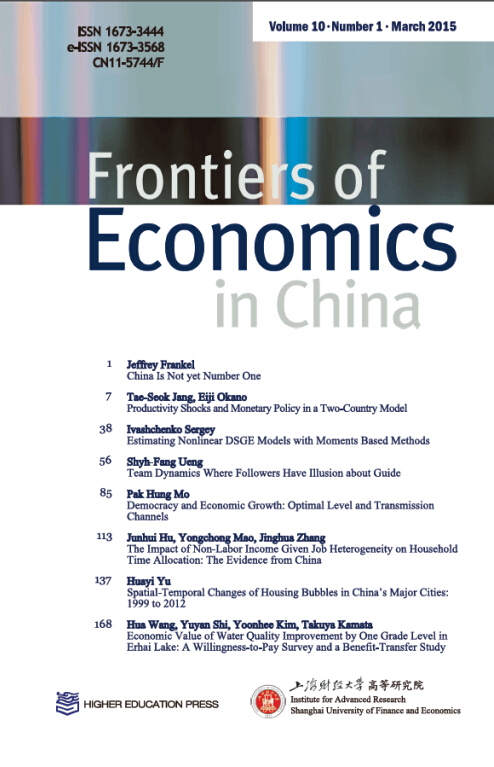非对称权力下放、政府间转移和地方政府支出政策
IF 1.5
4区 经济学
Q2 ECONOMICS
引用次数: 9
摘要
尽管中国的非对称财政分权制度多年来一直受到批评,但很少有研究直接证明其对地方政府支出政策的负面激励。通过将非对称权力下放和财政转移机制引入地方政府的目标函数,研究了非对称权力分散和财政转移对地方政府支出政策的激励作用,并利用省级面板数据进行了实证检验。研究结果表明,非对称分权显著削弱了地方政府增加社会支出的动机,而财政转移作为非对称分权的解决方案,并没有起到很好的作用。由于相对较大的收入效应,财政转移的融资机制不仅显著降低了地方政府提供社会公共产品的动机,而且由于相对成本的增加,削弱了财政竞争对地方政府支出政策的约束作用。尽管在财政资源净流入大于零的地区,财政转移分配机制对地方政府具有显著的正向激励作用,但由于共同的汇集效应,财政转移在地方政府提供社会公共产品激励分配中的综合效应在所有地区都是负的。本文章由计算机程序翻译,如有差异,请以英文原文为准。
Asymmetric Decentralization, Intergovernmental Transfers, and Expenditure Policies of Local Governments
Although Chinai¯s asymmetric fiscal decentralization system has been criticized for many years, there have been few studies giving direct evidence of its negative incentives on local government spending policies. By introducing the mechanism of asymmetric decentralization and fiscal transfers to the objective function of local government, this paper studies the incentive effects of asymmetric decentralization and fiscal transfers on spending policies of local governments, and uses the provincial panel data to carry out an empirical test. The conclusion shows that the asymmetric decentralization significantly weakens the incentives of local government to increase social expenditure, and as a solution to asymmetric decentralization, fiscal transfers fail to play a good role. Due to the relatively large income effect, the financing mechanism of fiscal transfers not only significantly reduces the incentives of local government to provide social public goods, but also weakens the constraint effect of fiscal competition on expenditure policies of local governments because of the increase in the relative cost. Although the distribution mechanism of fiscal transfers has a significant positive incentive to local government in regions where the net inflow of fiscal resources is more than zero, because of common pooling effects, the comprehensive effects of fiscal transfers in the distribution of incentives of local governments to provide social public goods are negative in all regions.
求助全文
通过发布文献求助,成功后即可免费获取论文全文。
去求助
来源期刊

Frontiers of Economics in China
ECONOMICS-
CiteScore
1.20
自引率
0.00%
发文量
373
期刊介绍:
Frontiers of Economics in China seeks to provide a forum for a broad blend of peer-reviewed academic papers of economics in order to promote communication and exchanges between economists in China and abroad. It will reflect the enormous advances that are currently being made in China in the field of economy and society. In addition, this journal also bears the mission of introducing the academic achievements on Chinese economics research to the world.
 求助内容:
求助内容: 应助结果提醒方式:
应助结果提醒方式:


